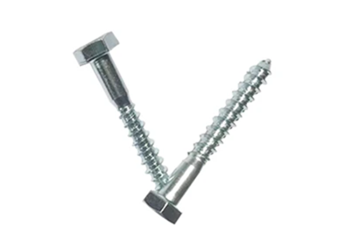Říj . 19, 2024 01:40 Back to list
what screws are used for metal studs
Understanding the Types of Screws Used for Metal Studs
When constructing walls, frameworks, or any structures involving metal studs, choosing the right screws is crucial for ensuring durability and stability. Metal studs have become increasingly popular due to their lightweight nature, resistance to rot and pests, and the ease with which they can be installed. However, the effectiveness of these metal studs largely depends on the screws used to anchor them. In this article, we will explore the different types of screws appropriate for metal studs, their characteristics, and how to select the right screws for your project.
Types of Screws for Metal Studs
1. Self-Drilling Screws One of the most commonly used screws for metal studs is the self-drilling screw, also known as a Tek screw. These screws feature a drill bit point that allows them to create their own hole as they are driven into the metal. This eliminates the need for pre-drilling, making installation simpler and faster, which is particularly advantageous in large-scale projects. These screws are often made from hardened steel and are coated to prevent rust. They are typically used for attaching metal studs to each other and for securing drywall to the studs.
2. Sheet Metal Screws Sheet metal screws are also an excellent choice for metal studs. These screws have a sharp point and are designed to fasten metal to metal. They tend to have a coarse thread that provides good holding power. Sheet metal screws can be used in situations where self-drilling screws might not penetrate deeper metal sections or where the metal thickness is greater. They can also be used in non-structural applications, such as fastening decorative elements.
3. Lag Screws For heavier applications, such as when attaching metal studs to concrete or brick, lag screws may be required. Lag screws have a large diameter and coarse threads, providing high holding power. However, they usually require pre-drilling with a pilot hole to ensure a secure fit. Lag screws are typically made from steel and may have a coating for rust resistance, making them suitable for indoor and outdoor use.
4. Screws with Specialized Coatings Depending on the environment where the construction is taking place, the screws may need specific coatings to prevent corrosion. For example, galvanized screws are coated with zinc to inhibit rusting, while stainless steel screws offer superior corrosion resistance and are ideal for high-moisture environments. It’s essential to assess the environmental conditions and select screws accordingly to prevent failures over time.
Selecting the Right Screws
what screws are used for metal studs

Choosing the right screws for metal studs involves considering several factors
- Thickness of Material Always assess the thickness of the metal studs and any additional materials you may be securing
. This will determine the size and type of screw you need.- Load Requirements Understanding the load that the fasteners will bear is crucial. If heavy loads are expected, opt for screws that provide greater anchorage, such as lag screws or heavy-duty self-drilling screws.
- Installation Environment Consider whether the installation is indoors or outdoors. For outdoor applications, look for screws with protective coatings to enhance longevity.
- Ease of Use If you prefer a quick installation, self-drilling screws are a great choice. For more complex attachments or thicker materials, you may need to use other types of screws.
Conclusion
In summary, when working with metal studs, the type of screws selected can significantly impact the overall integrity and durability of the structure. Self-drilling screws and sheet metal screws are typically sufficient for most applications, but factors such as material thickness, load requirements, and environmental conditions may necessitate alternative fasteners. Understanding these factors will help ensure that your project is sturdy and stands the test of time. Whether you're a seasoned contractor or a DIY enthusiast, making informed choices about screws for metal studs will lead to successful and long-lasting constructions. Always remember that investing time in selecting the appropriate screws translates into a secure and reliable build.


